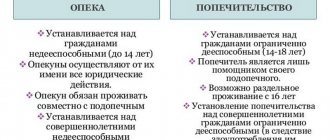“Develop a draft federal law on foster families for elderly citizens and people with disabilities,” says the document available to TASS.
As Elena Bibikova, deputy chairman of the Federation Council Committee on Social Policy, explained to TASS, currently in approximately half of the constituent entities of the Russian Federation there are regional laws that allow, as part of social support, to organize foster families and send elderly citizens or those who need help to them. A similar law, in particular, was adopted at the end of April in the Pskov region, which Bibikova represents in the Federation Council. The law allows the creation of foster families in the region for capable pensioners and disabled people.
“Today, our elderly citizens, disabled people of groups I and II who need care, can be provided with various types of social assistance and support, for example, home-based care, when a person is provided with services at home. There is such a form as placing people in a stationary social service institution: boarding houses, boarding houses. This is a form of assistance when a person cannot take care of himself at home and needs constant outside care,” the senator emphasized.
“Instead of placing this person in a boarding home or social institution, a form such as placement in a foster family is used. A person who needs constant outside care, regardless of age, can be accepted into a foster family. In this case, a tripartite agreement is concluded between the person who needs care, this foster family and social protection authorities,” Bibikova explained.
“It’s easier to be sick at home”
Among lonely old people in rural areas, according to statistics, 88% are women. They often find themselves alone, sick, in dilapidated houses that are unsuitable for living. And in this case, not every one of them, feeling their weakness, will agree to live in a nursing home; they are not always ready to leave their home even to move closer to their relatives. Often they are not expected there.
In this case, a foster family becomes a good alternative to a state-owned home. In the Ivanovo region, the social project “Foster family for the elderly” has been operating since 2020. Its essence is that a tripartite agreement is concluded between the social service institution, the assistant and the senior citizen to provide assistance in ensuring the latter’s life. At the same time, each party has its own responsibilities. Thus, the Center for Social Services provides training for school assistants for citizens caring for the elderly and disabled, provides social taxi services, a rental point for technical rehabilitation equipment and household items, and provides methodological and legal support to foster families.
Guardianship_1
Photo: tsso-zavolzhsky.rf
The Old Man and the Grief
Why is society indifferent to the growing number of crimes against older people?
As a rule, an agreement to create a foster family is concluded by long-time acquaintances, between whom a trusting relationship has developed over the years. The project does not imply mandatory living under one roof. An elderly person most often remains at home, but sometimes, if there is such a need, he moves to a foster family. Experts believe that, thanks also to this project, there are no queues for neuropsychiatric boarding schools in the Ivanovo region.
Despite its youth, the program has already received a great response from those who care about lonely elderly people living nearby. According to the regional department of social protection of the population, 25 agreements were concluded in 2017–2018. As of August this year, 57 agreements are already in force in 15 districts. And this is only according to official data; in fact, there are many more such families.
Pros and cons of foster families for older people
Foster care has many positive benefits for an older person. Especially if a person is already so old that he is not able to take proper care of himself, and a modest pension does not provide the opportunity to ensure the most comfortable standard of living. In a family, even if not their own, an elderly person can feel calmer and more comfortable than in a specialized institution, and it is unlikely that even the best homes for older people can compare in the level of comfort with a good family.
An elderly citizen of Russia, even if he is unable to live independently, does not lose his legal rights: the family that accepted him is obliged to respect them. If he has legal capacity, then he can be “adopted” only by giving consent.
Anyone who accepts an elderly person into their family receives certain benefits guaranteed by law. For example, in most regions where such projects are being implemented, the authorities provide financial assistance to such citizens. In Ugra, for example, the amount of monthly payments is slightly more than 10 thousand rubles. Of course, these funds are allocated to provide the old man with better living conditions. But since he formally becomes a member of the family, these funds can go to the family budget.
The main disadvantages of such a family for an elderly person are related to the fact that there are no federal laws regulating this form of guardianship. There are only regional programs. In this regard, many procedural issues become more complicated and many questions arise. For example, how is this form of guardianship formalized? How should guardians behave if the “adopted child” becomes incapacitated? They are trying to clarify the situation at the same regional level.
If you are thinking about providing assistance to this type of elderly person, you should talk to a competent lawyer. He will answer your questions, prepare documents and, if necessary, draw up a step-by-step action plan.
Sources:
Federal Law “On the Basics of Social Services for Citizens in the Russian Federation”
For money to my beloved grandmother
Valentina Petrova from the Komsomolsky district and her husband Ivan have long been under the care of a neighboring family. Kind people have been caring for them for five years. They didn’t sign any agreement, don’t see the point in it, and don’t expect any gratitude. They say that the old people replaced their parents, who have long been dead.
Guardian_5
Photo: TASS/Alexander Ryumin
Help with digital: who will help pensioners get used to the Internet?
And how they are taught to use computers in countries where there is no such profession
“We couldn’t see how veterans live, who invested their souls and all their resources in raising their children and grandchildren, but they turned out to be ungrateful - they come no more than once a year, and only to take money,” the guardians say. “But the fact that parents save on everything to save this money for them, that they walk around in almost rags and eat poorly, doesn’t bother them.” Yes, and cleaning up the house, helping in the garden - it doesn’t even occur to them...
Piece work
“Hospital-substituting technology for social work.” Tatyana would not have been able to utter the words that officially denoted Maria Kondratyevna’s residence with her. The latter left for Tatyana Stepchenko from her rude daughter-in-law. It’s hard for Tatyana to say what has changed after they registered the status of a foster family in the village council - they lived in perfect harmony and still live: they watch TV in the evenings, their grandmother helps with the cooking as best she can. Is it possible that the district social security service became more frequent?
In rural areas, elderly people are taken into families much more often than in cities.
— Living in the village alone, and at an old age, is much harder. Often, the adoption of regional laws occurs after appeals from rural elderly people who prefer the families of fellow villagers to state boarding schools, says Alla Agafonova, press secretary of the Ministry of Social Development of the Irkutsk Region, where the law “On foster families for elderly citizens and the disabled” came into force on January 1 of this year .
A foster family is now, of course, the most beneficial form of placement for the elderly for the state. There is no need for a stationary nursing home with a staff of caregivers, everyone is replaced by one assistant, and an apartment or house is enough to accommodate the “family.” It is not without reason that the Ministry of Labor plans, within the framework of the federal project “Older Generation,” to distribute foster family technologies for the elderly in all 85 regions.
But will this technology become widespread?
“I doubt it,” says Valery Ryazansky, chairman of the Federation Council Committee on Social Policy, chairman of the Union of Pensioners of Russia. “We are talking about exceptional situations in which people find themselves: complete incompatibility with children, their living far away, their state of health. Social services here require “custom” solutions.
Officially
“It’s too early to call us family”
Elena Garanina took custody of the Kolchin family, who live nearby in the village of Krasnogorsk, Kineshma district. He says that since the agreement was concluded between them, in general, nothing has changed, except that there has been more communication.
Guardian_2
Photo: ivgazeta.ru
— We don’t have such a big age difference — we like to talk about topics that interest us. They turn to me for advice,” says Elena. “It’s probably too early to call us a family, but it’s for sure that the relationship has now become much closer.
Happily ever after
Why does Russia need to join the club of centenarians “80+”
A small age difference between assistants and their charges is quite common. They have the same interests, it’s not boring together, but some maintain health and strength until old age, so they have enough for themselves and their neighbors.
While the pies are hot...
Rufina Varkova, a resident of the village of Osinovo, Verkhnelandekhovo district, became the official assistant of Rimma Osina from neighboring Baranovo on her own recommendation: the veteran told the center staff that an old friend from a neighboring village was helping her a lot.
“Rimma Mikhailovna still does everything herself, her children help her, who visit her regularly, we have rather friendly relations, almost family,” says Rufina. “I always liked this family, and Rimma Mikhailovna, and her late husband, and wonderful children. And when you have known each other for a long time, and even feel sympathy, then you want to take care of this person.
Guardian_3
Photo: TASS/Yuri Smityuk
According to her, it is still a question of who helps whom.
“So she bakes pies and calls me, says: come running while they’re hot,” Rufina smiles. “And I call when, for example, I’m going to Landeh, asking what to buy, or bringing medicine from the pharmacy. She is like a family member to me, and we signed the agreement, since it was necessary, it did not affect our relationship. Is it just nice to know that if you need it, you can always turn to the center for help. I'm sure they won't refuse.
Not yet dead silence: how the last inhabitants of an abandoned village live
Nina Ivanovna, a prisoner of German camps, is 93 years old. She and her daughter spent about 20 years without electricity and practically cut off from the world
Rimma Osina, a former teacher, spent her entire life helping people and is now sure that this kindness has returned to her.
“I love Rufa very much, we feel good together.” And even when we feel bad, we sit, talk, laugh, and it becomes easier. What a blessing that I have her!
A lonely grandfather wants to meet: how to welcome a stranger into the family
How to welcome a stranger into your family
Improving the lives of lonely elderly people by placing them in foster families is certainly a good thing. But how many will agree to such a feat? It’s hard, both physically and mentally, to care for you when your mother and father fall ill, but only yesterday they were able to take care of themselves, and even take care of their grandchildren. But today they are weak, require constant attention (often against their will), and their relatives soon give up. What is it like to accept a stranger into your family?
It turns out that there are people ready to take an elderly person into their family. Several dozen regions are involved in the experiment. Everyone decides what reward the family is entitled to. As a rule, we are talking about one thousand rubles. In the best case, the elderly person’s pension itself is added to the family budget in addition to a small additional payment from the state. However, there are exceptions.
For example, in the Khanty-Mansiysk Autonomous Okrug, where the experiment is being conducted, families sheltering lonely elderly people receive an allowance of 10 thousand rubles. The authors of the initiative have already recommended that regional authorities expand this practice throughout the country. You can take into your family a capable citizen of retirement age who, for health reasons, is unable to independently exercise and protect his rights and fulfill his duties. In addition, such a person should not have adult, capable children, or they, for one reason or another, cannot care for him. According to Rosstat, in Russia at the moment more than a quarter of the population has reached the age of over working age, and there are only 173 foster families for the elderly throughout the country...
It's easier to survive together
“Everything that concerns living people and their families is a very special story,” employees of the “Old Age in Joy” foundation told MK. — Usually foster families develop on their own, and if there is a law in the region, they can be “formalized” and supported by an agreement. And if there is no law, people simply live together.
The allowance for such foster families is very small. As a rule, 1000 rubles or a little more. In rare cases, if a pensioner accepted into the family has a disability, up to the rate of the social worker. It is unlikely that such an amount will be the main motivation for anyone to accept an elderly person into their family. The stories of such families that we know have two layers. Firstly, people really want to help an elderly person whom, as a rule, they have known for a long time, because we are not talking about megacities, but about small settlements and familiar people - close neighbors, former colleagues, etc. Secondly, in many regions of Russia in the outback there is such a bad job situation that an elderly person’s pension (even if it is minimal - 8,800 rubles) may turn out to be at least some kind of stable family income in the intervals between seasonal earnings. It’s easier to survive together - so neighbors or acquaintances from different generations unite to survive.
When everything is good in this family with a foster elderly person, then, of course, it is much better than a boarding school. But among the contract options, there is one where the family settles in housing owned by an elderly person. This means that a person lives in his own house or apartment, and he is lonely: his husband, for example, died, there were no children... Once there was a family, and then it was gone. And someone does not take an old lonely person to live with him, but comes to live with him.
In this case, after his death, the housing goes to the person who cared for him. And this is a story not only about altruists; since in general life can turn out differently, it is important that there is someone who regularly monitors whether everything is fine. Whether it is a social worker or someone else, it is important that he approaches this responsibly. After all, the grandparents who come to a new family are independent adults, with their own habits, preferences, ideas about what is necessary and proper. And if a child in a foster family goes through a period of adaptation and accepts its rules, and the new parents bear full responsibility for him, then there is no point in re-educating the elderly person. It’s not just “we’ll find a corner for grandma and she’ll sit with our children,” although that also happens; Sometimes there are just wonderful Christmas stories. An elderly person will not necessarily fit into the family; mutual sympathy will not necessarily remain the same after a few months. Therefore, it is very important that the contract is concluded for a certain period and that there are mechanisms for its early termination. There is an entrance to this story, and there must be an evacuation exit known to all participants.
Photo: Natalia Gubernatorova
Grandmother must become dear, otherwise everything is in vain
It is important for a family that is hosting an elderly person to understand and it is advisable to specify in the contract the options for what will happen if the elderly person’s condition worsens. A grandmother may come to a new family relatively cheerful, in her right mind, and then find herself either bedridden, or in her own world, or both. But we still don’t have much in terms of services to help families—whether it be a native family or an adopted one caring for an elderly disabled person: a long-term care system, including family assistance, is still just being created. If an elderly person cannot be left unattended even for a couple of hours, and the foster family is unable to hire a nurse, cannot quit their job (after all, then the children will have nothing to feed) and wants to terminate the contract - for example, the elderly person will be transferred to a nursing home - Will this be perceived by an older person as a betrayal, and will all witnesses to the situation be harshly condemned, similar to abandoning a loved one or an adopted child?
In general, the practice is very good when people meet each other, become friends, decide to live together and are happy and take care of each other. For example, we know how nurses from nursing homes took their beloved grandmothers home - by the way, without benefits. And when this practice is replicated “from above”, it is necessary to think through the risks and fully perceive the elderly person as a “subject”, and not just an “object” of care. And although this is a more sincere format of care for an elderly person and cheaper for the state than a hospital, it is very labor-intensive and responsible.
Are you family? Organize at least everyday life and treatment
And now a little formalities. However, they are also very important when intentions arise and especially when concluding an agreement.
The following categories of citizens need social services and care:
- capable single people aged: women - from 55 years old and men - from 60 years old;
— citizens awaiting placement in nursing homes or homes for the disabled;
— disabled people of the 1st and 2nd groups, left without the care of relatives, spouses, adoptive parents;
- elderly spouses living alone.
A huge number of applications for placement in a family are received from people in these categories. Lonely elderly people, disabled people living in rural areas especially need help.
Representatives of foster families undertake the following responsibilities:
— providing people under care with food, medicine, and household items for daily use;
— provision of basic medical care until the doctor arrives, accompaniment to the hospital;
- organization of everyday life and leisure time in a comfortable psychological climate, a warm home environment.
Families receiving disabled and elderly people implement one of two options for organizing assistance.
The first option: “Accommodation on the territory of the host family.” A capable citizen invites an elderly person to his apartment and family. The guardian may have a permanent job. In their free time, the foster family provides assistance to the old man, organizes everyday life and treatment. Care refers to the professional activity of social workers. The guardian has the right to record length of service and receives a special payment. Monetary compensation should be equal to the amount that is spent on maintaining an old or disabled person in a hospital.
The second option: “Living on the territory of an elderly person.” A family arranges care for a single person in his apartment. A responsible citizen moves in with the old man and lives with him on a permanent basis. After the death of the citizen under guardianship, the adoptive family will be able to receive an apartment or house in personal ownership, if this is provided for in the contract.
Bureaucracy is appropriate here
A foster family can consist of 1–2 adult capable citizens without serious health problems. Family members must be registered within the region where the single ward lives.
Note! A foster family cannot be arranged if the parties are close relatives.
Social security will refuse to transfer a pensioner to a family if at least one family member is against this decision. In addition, the authorities take into account the square footage of the living space. For example, a family is ready to take in a disabled person, but the minimum area requirement for each family member will be violated.
The registration process includes the following steps:
— the family’s appeal to the social protection authorities to receive advice and a list of candidates, collecting a package of documents according to the list;
— entering the family into the Register of citizens planning to care for someone in need of care;
— checking living and social conditions;
— psychological preparation of future guardians and elderly people, disabled people;
— checking the collected documents with social security and guardianship authorities, making a decision on organizing a foster family within 10–30 days after submitting the application and papers;
— conclusion of a family agreement; the agreement is signed by three parties: the senior citizen, his guardian and a representative of the social security authority.
After signing the agreement, social security authorities issue a special passport for the family. Social security representatives check every month how an elderly person is kept and in what conditions he lives. If the family violates the prescribed requirements, the contract is terminated at the request of one of the parties.
Last refuge
In some regions, official foster families for the elderly and disabled have existed for several years. For example, in the Samara region, which was one of the first to join the project - since 2008. In the Ivanovo region, the first such families were formed in seven districts - Puchezhsky, Verkhnelandekhovo, Lukhsky, Pestyakovsky, Kineshma, Lezhnevsky and Furmanovsky.
As Izvestia was told at the Center for Social Protection of the Population in the Verkhnelandekhovo and Pestyakovsky districts, in remote settlements there are no social workers and there is nowhere for older people to receive regular assistance. Specialists from mobile teams, arriving there, talked about the opportunity that had arisen - to officially ask for help or provide it to those who need it. And such people—both those in need and caregivers—were sure to be found. Soon, according to the head of the social protection department, Tatyana Rozhkova, the “Foster family for the elderly” program will be introduced in all districts.
Guardian_4
Photo: TASS/Dmitry Feoktistov
Elderly overboard: millions of Russians do not receive assistance from social services
A new model of care for the sick and disabled will allow their relatives to go to work
The first assistance agreement was concluded in January 2017 in the Verkhnelandekhovo district, which became the record holder for the number of such foster families. But if quite recently there were 12 of them here, now only eight remain - the old people pass away, and then the agreement is considered terminated. By the way, all the sad troubles associated with the funeral also fall on the shoulders of the assistants. And not a single family that voluntarily took upon itself the obligation to care for the elderly has refused them.
However, the director of the Navoloksky Center for Social Services, Yulia Guseva, notes that there can be no refusals - agreements are signed only by responsible people who understand the seriousness of their obligations. In addition, some are afraid of control from the center, and although it is formal, it exists.
“We call older people or meet with them and find out if everything is fine with them,” says Yulia Guseva. — It’s nice that there have never been any complaints, but only gratitude. Overall, I think it is very good that it is possible to conclude such an agreement. After all, these people take care of the elderly anyway. All of them, as a rule, live next door to elderly people under their care and know each other well. For our part, we try to help as much as we can - we solve some bureaucratic issues, answer questions, we can provide a social taxi service...
The “Guest Family” project for the elderly began to be implemented in the Stavropol region
Lifetime maintenance
There is another form of guardianship for the elderly. Officially, it is called lifelong maintenance with dependents. There are two parties involved in such a program: the elderly person, who is also the annuity recipient, and the party who undertakes to provide dependent maintenance - the annuity payer. The agreement is concluded between two individuals.
What does this mean. According to the agreement, the annuity payer receives ownership of real estate belonging to the pensioner: an apartment, a residential building, a plot of land, etc. In return, he undertakes to provide the annuity recipient with lifelong maintenance with dependents, namely housing, food, clothing, care, etc.
Unlike guardianship, the family does not have to live with the ward. This is more of a partnership option than a family option.
What does a pensioner get?
According to the agreement, the trustee is obliged to provide the ward with:
■ daily nutrition;
■ clothes and shoes for the season, their repair and replacement;
■ bed linen, household and toiletries;
■ required medical care – including buying medications, calling a doctor at home, organizing treatment in a hospital setting.
And also carry out:
■ weekly cleaning of the premises where the pensioner lives;
■ basic household services;
■ personal care for a pensioner (at his request);
■ receiving a pension for an elderly person and other payments due to him.
■ telephone and personal communication with a pensioner when he is undergoing treatment in a hospital.
The rent payer is also responsible for paying for the necessary funeral services.
What is important to indicate in the contract
A contract is an official document that, if necessary, will protect an elderly person from the machinations of scammers. It is no secret that a caring assistant may in fact turn out to be a businessman who seeks to make money from a lonely pensioner. Or, on the contrary, due to age, an elderly person may unreasonably decide that they want to profit from him. In any case, you need to be very careful when drafting the contract.
The main thing that needs to be indicated in it is the full cost of the monthly maintenance of the pensioner. This amount cannot be less than two subsistence minimums per person.
It is important to write down all clauses of the contract in as much detail as possible, including those that relate to a variety of nuances of caring for a pensioner and his maintenance. It is worth indicating the number of products provided, the regularity of cleaning the apartment, the volume of medications purchased, etc.
One of the best options would be an agreement that stipulates the signing of the so-called service acceptance certificate at the end of each month. This will make it possible to clearly record that the rent payer fully fulfills its obligations, and the parties have no claims against each other. It is best to consult with a lawyer before signing a contract.
Is it possible to return housing?
The contract is not lifelong bondage. In the event of claims, the pensioner can terminate it and demand the return of the real estate transferred to ensure lifelong maintenance. This is possible, for example, if the payer caused him bodily harm, made an attempt on his life or the life of his family and friends. If there is evidence, the case is resolved through court. The violator usually loses all rights to the property received as rent. But even after terminating the life annuity agreement, the court does not have the right to return the property to the pensioner or his heirs if it was transferred to the payer not for products, services, etc., but for money (the amount does not matter) - that is, in fact, sold . Therefore, when signing an agreement, the safest thing for a pensioner would be to pay in kind.
pros
For a pensioner. He gets the opportunity to live in peace, receiving the necessary help and participation from his family. In this way of life there is much more warmth, attention, and care than in the same nursing home.
For the trustee. The state supports the caregiver by paying him monthly approx. 14 thousand rubles. The pensioner also transfers a certain amount to the assistant for his maintenance. It is specified in the contract and amounts to no more than 75% of his income.










